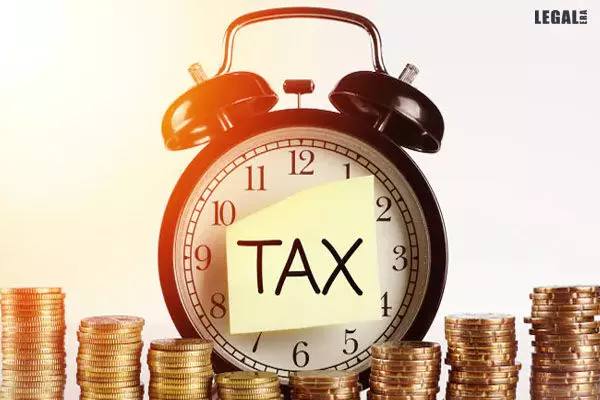- Home
- News
- Articles+
- Aerospace
- AI
- Agriculture
- Alternate Dispute Resolution
- Arbitration & Mediation
- Banking and Finance
- Bankruptcy
- Book Review
- Bribery & Corruption
- Commercial Litigation
- Competition Law
- Conference Reports
- Consumer Products
- Contract
- Corporate Governance
- Corporate Law
- Covid-19
- Cryptocurrency
- Cybersecurity
- Data Protection
- Defence
- Digital Economy
- E-commerce
- Employment Law
- Energy and Natural Resources
- Entertainment and Sports Law
- Environmental Law
- ESG
- FDI
- Food and Beverage
- Gaming
- Health Care
- IBC Diaries
- In Focus
- Inclusion & Diversity
- Insurance Law
- Intellectual Property
- International Law
- IP & Tech Era
- Know the Law
- Labour Laws
- Law & Policy and Regulation
- Litigation
- Litigation Funding
- Manufacturing
- Mergers & Acquisitions
- NFTs
- Privacy
- Private Equity
- Project Finance
- Real Estate
- Risk and Compliance
- Student Corner
- Take On Board
- Tax
- Technology Media and Telecom
- Tributes
- Viewpoint
- Zoom In
- Law Firms
- In-House
- Rankings
- E-Magazine
- Legal Era TV
- Events
- News
- Articles
- Aerospace
- AI
- Agriculture
- Alternate Dispute Resolution
- Arbitration & Mediation
- Banking and Finance
- Bankruptcy
- Book Review
- Bribery & Corruption
- Commercial Litigation
- Competition Law
- Conference Reports
- Consumer Products
- Contract
- Corporate Governance
- Corporate Law
- Covid-19
- Cryptocurrency
- Cybersecurity
- Data Protection
- Defence
- Digital Economy
- E-commerce
- Employment Law
- Energy and Natural Resources
- Entertainment and Sports Law
- Environmental Law
- ESG
- FDI
- Food and Beverage
- Gaming
- Health Care
- IBC Diaries
- In Focus
- Inclusion & Diversity
- Insurance Law
- Intellectual Property
- International Law
- IP & Tech Era
- Know the Law
- Labour Laws
- Law & Policy and Regulation
- Litigation
- Litigation Funding
- Manufacturing
- Mergers & Acquisitions
- NFTs
- Privacy
- Private Equity
- Project Finance
- Real Estate
- Risk and Compliance
- Student Corner
- Take On Board
- Tax
- Technology Media and Telecom
- Tributes
- Viewpoint
- Zoom In
- Law Firms
- In-House
- Rankings
- E-Magazine
- Legal Era TV
- Events
Calcutta High Court Upholds Appellant's Stand on Input Tax Credit Reversal, Emphasises Action against Supplier

Calcutta High Court Upholds Appellant's Stand on Input Tax Credit Reversal, Emphasises Action against Supplier
Suncraft Energy Private Limited (the appellant) has secured a favourable verdict from the Calcutta High Court in a dispute concerning input tax credit (ITC) within the GST regime.
The Court determined that the Assistant Commissioner of State Tax had engaged in arbitrary action by nullifying the ITC claimed by the appellant without prior recourse against the supplier.
In summary, the appellant was dissatisfied with the Assistant Commissioner of State Tax's decision to overturn their claimed input tax credit (ITC) under the West Bengal Goods and Services Tax Act, 2017. In response, the appellant filed a writ petition to challenge the order. The Single Bench's decision on the writ petition instructed the appellant to lodge a statutory appeal with the appellate authority. Unsatisfied with this resolution, the appellant initiated the current appeal.
The Division Bench, comprised of Chief Justice T.S. Sivagnanam and Justice Hiranmay Bhattacharyya, meticulously examined two press releases released by the Central Board of Indirect Tax and Customs. The press release dated October 18, 2018, clarified that the act of providing outward details in Form GSTR-1 by suppliers and the subsequent viewing of these details in Form GSTR-2A by recipients were designed to ease taxpayers' processes. This procedure does not impede taxpayers' ability to claim the input tax credit (ITC) through self-assessment, following the regulations specified in Section 16 of the Act.
Moreover, the press release dated May 4, 2018, explicitly affirmed that there would be no automatic reversal of ITC from a buyer due to the seller's tax non-payment. Instead, when a seller defaults in tax payment, recovery actions would target the seller. However, the revenue authorities would have the option to reverse credit from the buyer, particularly in extraordinary situations.
The Bench concluded that the actions of the Assistant Commissioner of State Tax were arbitrary, as they failed to take any measures against the selling dealer or supplier, despite the appellant providing tax invoices and bank statements as proof of payment. The Bench underscored that, before directing the appellant to reverse the input tax credit (ITC) and remit it to the government, the Assistant Commissioner of State Tax should have initiated proceedings against the selling dealer.
The Bench further highlighted that resorting to such actions should only occur in exceptional scenarios, such as when there is clear evidence of collusion between the appellant and the seller, or when circumstances involve a missing seller, ceased business operations, or insufficient assets.
Consequently, the Assistant Commissioner of State Tax's order was nullified. The Court instructed the relevant authorities to prioritise pursuing action against the concerned seller. Any action against the appellant should only be initiated in line with exceptional circumstances, as elucidated in the press release by the Central Board of Indirect Taxes and Customs.


